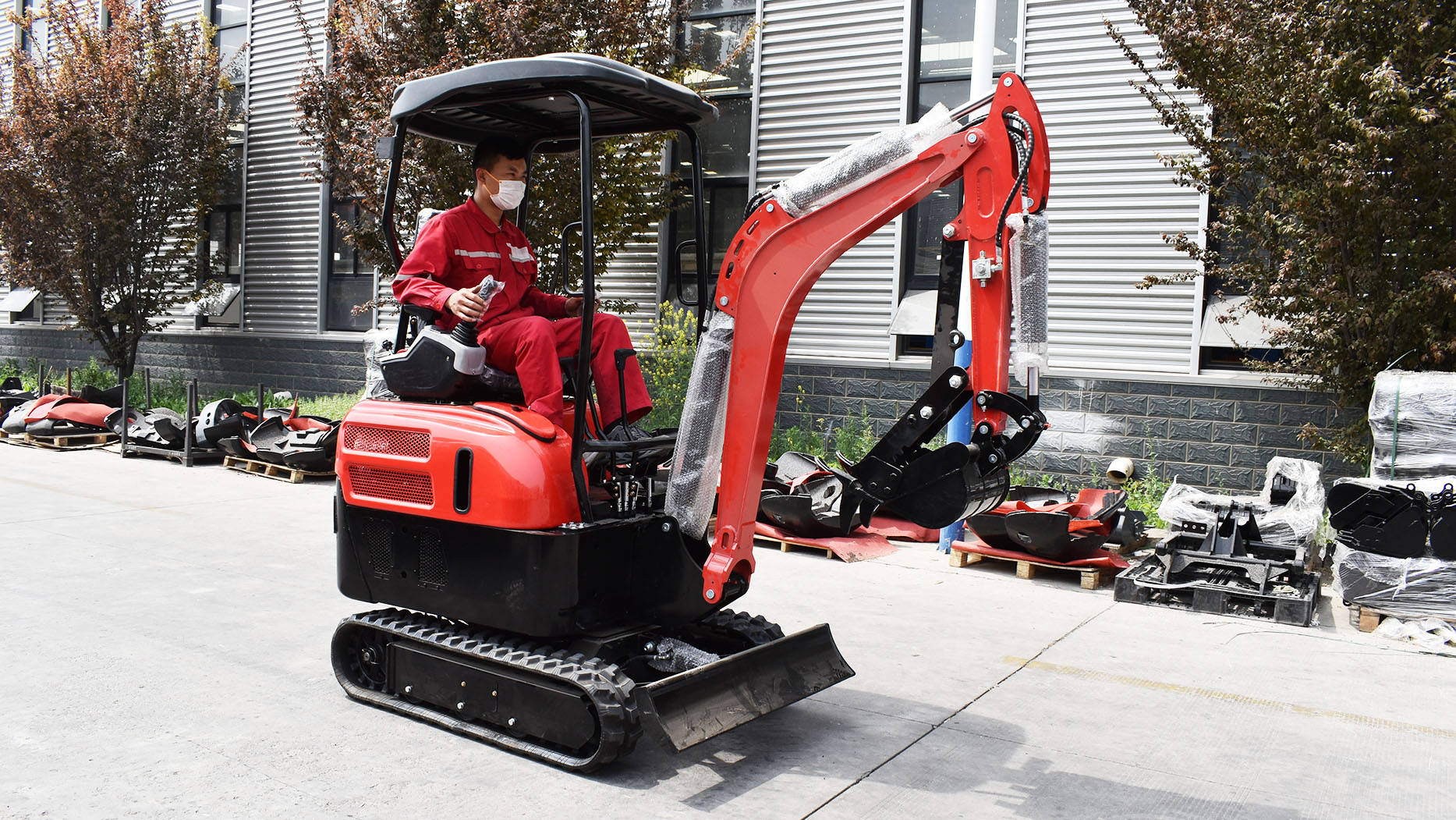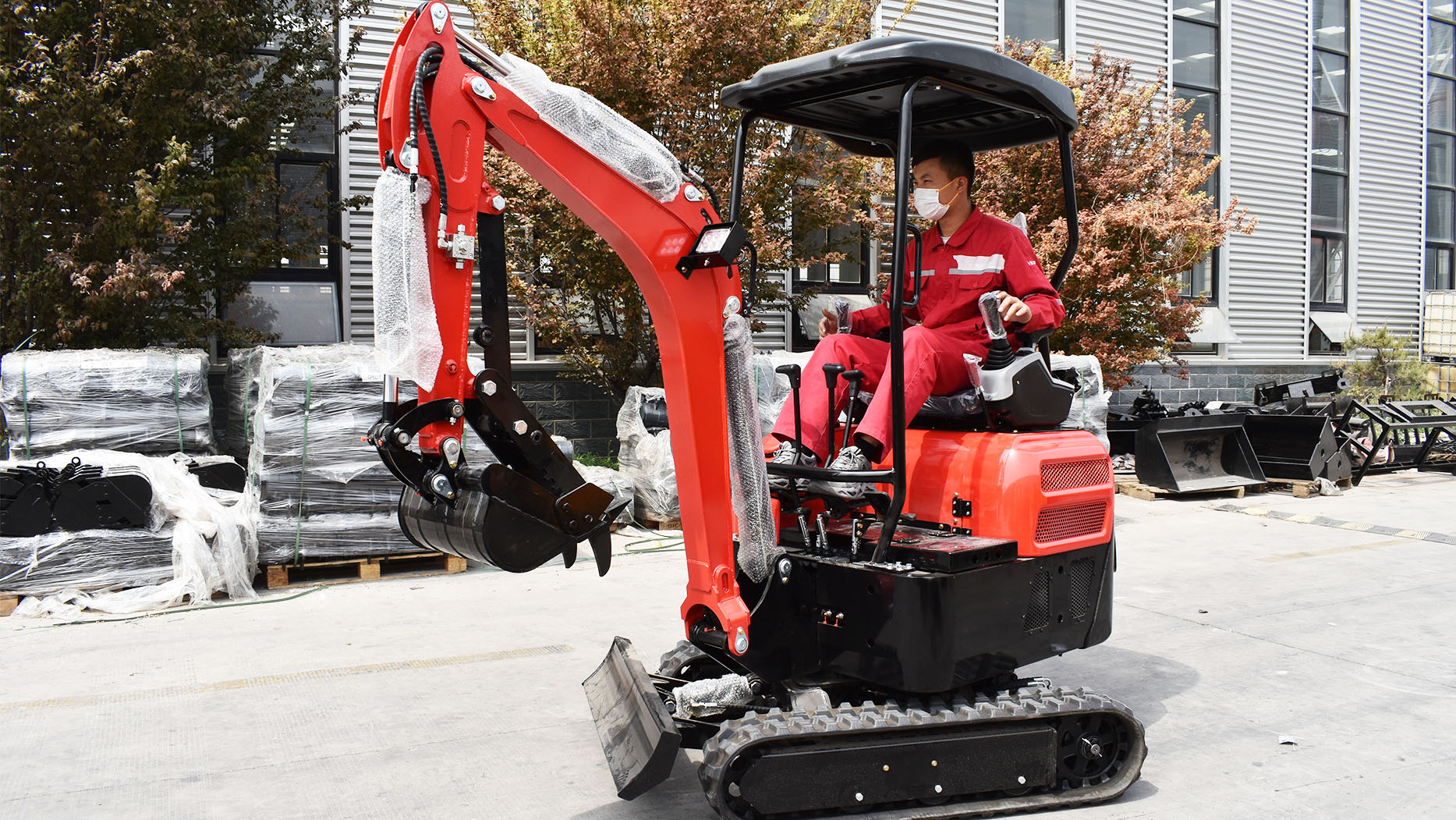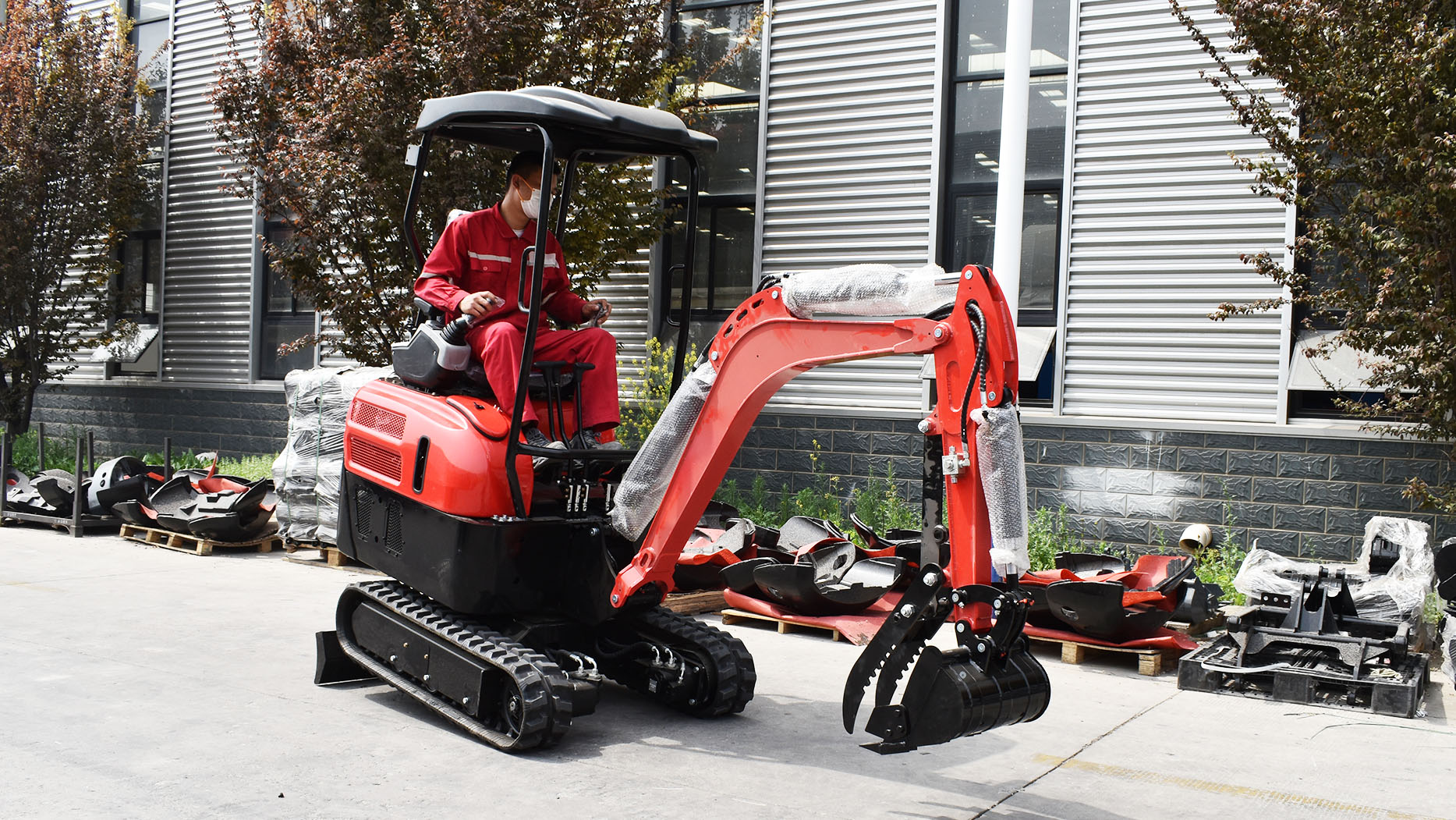The compact yet mighty mini excavator has become an indispensable workhorse across a multitude of industries, from landscaping and utility work to general construction and even agriculture. Their ability to access confined spaces, coupled with surprising power and versatility through a range of attachments, has fueled a booming market. This begs the crucial question for potential buyers and renters: Who makes the best mini excavator?
Unfortunately, there's no single, definitive answer to this seemingly straightforward query. The "best" mini excavator is a highly subjective concept, intrinsically linked to the specific needs, priorities, and budget of the end-user. What excels for a homeowner tackling weekend projects might fall short for a construction crew demanding relentless performance and durability.
This technical article will not crown a single champion but rather delve into the key contenders in the mini excavator market, dissecting their strengths, weaknesses, and the factors that contribute to their reputation. By understanding these nuances, potential buyers and renters can make informed decisions tailored to their unique requirements.
The Titans of the Mini Excavator World: A Look at the Major Players
Several manufacturers have consistently risen to the top of the mini excavator market, establishing strong reputations for quality, reliability, and innovation. These are some of the key players that frequently appear in discussions about the "best":
 1. Kubota: Often cited as a leading brand, Kubota has cultivated a strong following for its reliability, durability, and fuel-efficient engines. Their range of mini excavators caters to diverse needs, from ultra-compact models for tight access to larger options for more demanding tasks. Kubota is particularly well-regarded in the agricultural and smaller contracting sectors. Their U-series, known for its minimal or zero tail swing, is a popular choice for work in confined areas.
1. Kubota: Often cited as a leading brand, Kubota has cultivated a strong following for its reliability, durability, and fuel-efficient engines. Their range of mini excavators caters to diverse needs, from ultra-compact models for tight access to larger options for more demanding tasks. Kubota is particularly well-regarded in the agricultural and smaller contracting sectors. Their U-series, known for its minimal or zero tail swing, is a popular choice for work in confined areas.
Strengths: Exceptional reliability, fuel efficiency, wide range of models, strong dealer network, good resale value.
Potential Weaknesses: Can sometimes be perceived as having a slightly higher price point compared to some competitors.
2. Bobcat: A name synonymous with compact equipment, Bobcat offers a comprehensive lineup of mini excavators known for their innovative designs, powerful hydraulics, and impressive power-to-weight ratio. Their zero-tail swing models are particularly popular for urban construction and work in close proximity to obstacles. Bobcat also boasts a vast array of compatible attachments, further enhancing the versatility of their machines.
Strengths: Strong power and performance, innovative features, extensive attachment compatibility, well-established dealer network.
Potential Weaknesses: Some users report that certain models can be less fuel-efficient than competitors.
3. Caterpillar (CAT): A global leader in heavy-duty construction equipment, CAT brings its renowned engineering and durability to its range of mini excavators. Known for their robust build, advanced technology, and powerful performance, CAT mini excavators are a favorite among larger contractors and those tackling demanding tasks. Their focus on operator comfort and integrated technology also sets them apart.
Strengths: Exceptional durability, powerful performance, advanced technology integration, comfortable operator stations, strong global dealer network.
Potential Weaknesses: Can come with a premium price tag.
4. John Deere: With a strong heritage in both agriculture and construction, John Deere offers mini excavators known for their operator-friendly designs, smooth controls, and exceptional customer support. Their machines are well-suited for utility work, landscaping, and agricultural applications, often striking a good balance between performance and ease of use.

Strengths: Operator comfort, smooth controls, strong customer support, versatile for various applications.
Potential Weaknesses: Some models might not offer the same raw power as some competitors in the same size class.
5. Takeuchi: Often credited with introducing the first 360-degree slew compact excavator, Takeuchi has a long history of innovation in the mini excavator market. Their machines are known for their rugged designs, smooth operation, and suitability for challenging terrains. Takeuchi often focuses on providing high-performance machines with robust hydraulic systems. Their FR series, featuring a side-to-side boom, offers unique advantages in terms of visibility and maneuverability in tight spaces.
Strengths: Innovative designs (e.g., side-to-side boom), robust build, smooth operation, strong hydraulic performance.
Potential Weaknesses: Dealer network might be less extensive in some regions compared to larger manufacturers.
Beyond the Big Four: Other Notable Contenders
While Kubota, Bobcat, CAT, John Deere, and Takeuchi often dominate the conversation, several other manufacturers offer compelling mini excavator options:
Yanmar: Known for their eco-friendly, zero-tail swing designs that don't compromise on performance. Yanmar machines are often praised for their fuel efficiency and suitability for tight and delicate projects.
Volvo: Offers mini excavators with a focus on advanced hydraulics, fuel-efficient engines, and operator comfort. Their machines are often seen as a strong contender in terms of overall quality and performance.
Hitachi: Focuses on durability and precision, making their excavators a top choice for demanding tasks in construction and landscaping.
Case: Designs their excavators for versatility and reliability, with modern controls and a strong build.
Hyundai: Their mini excavators stand out for their fuel efficiency and operator-focused designs, balancing power with comfort.
Wacker Neuson: Offers a range of mini excavators, including electric models, with a focus on compactness and ease of use.
The Subjectivity of "Best": Key Factors to Consider
Ultimately, determining the "best" mini excavator requires a thorough evaluation based on the following critical factors:
1. Operating Weight and Size Class: Mini excavators are typically classified by their operating weight, ranging from under one ton to around ten tons. The ideal size depends on the space constraints of the job site, the required digging depth and reach, and the weight of materials to be lifted.
2. Digging Depth and Reach: The maximum digging depth and reach of a mini excavator are crucial specifications for excavation tasks. Different models offer varying capabilities in this regard.
3. Lifting Capacity: The machine's lifting capacity at various distances and heights is essential for material handling tasks. Consider the typical weights you will need to lift.
 4. Engine Power and Hydraulic Performance: The engine's horsepower and the hydraulic system's flow and pressure directly impact the machine's digging force, lifting capacity, and the performance of hydraulic attachments.
4. Engine Power and Hydraulic Performance: The engine's horsepower and the hydraulic system's flow and pressure directly impact the machine's digging force, lifting capacity, and the performance of hydraulic attachments.
5. Maneuverability and Tail Swing: For work in confined spaces, zero or minimal tail swing models are highly advantageous. Consider the typical working environment and potential obstacles.
6. Attachment Compatibility: The availability and ease of connecting various attachments are crucial for maximizing the machine's versatility. Ensure the dealer offers the specific attachments you will need.
7. Operator Comfort and Ergonomics: Features like adjustable seats, intuitive controls, good visibility, and climate control can significantly impact operator productivity and reduce fatigue, especially during long working hours.
8. Durability and Reliability: A machine's build quality, component lifespan, and reputation for reliability are critical factors in minimizing downtime and maximizing the return on investment. Researching user reviews and the manufacturer's warranty can provide insights.
9. Fuel Efficiency: Operating costs can be significantly impacted by a machine's fuel consumption. Consider models known for their fuel-efficient engines.
10. Dealer Support and Service Network: A strong dealer network with readily available parts, service, and technical support is essential for minimizing downtime and ensuring the long-term health of your machine.
11. Price and Total Cost of Ownership: Consider not only the initial purchase price but also the long-term costs of maintenance, fuel, insurance, and potential repairs.
The Rise of Niche Players and Electric Options:
The mini excavator market is also witnessing the emergence of niche players and a growing trend towards electric-powered machines. Electric mini excavators offer zero emissions and reduced noise levels, making them ideal for indoor work and environmentally sensitive areas. While currently representing a smaller market share, electric options are expected to gain prominence in the future.
Conclusion: An Informed Decision is the Best Decision
In the final analysis, the "best" mini excavator is not a single brand or model but rather the machine that best aligns with the specific needs and priorities of the user. Each of the leading manufacturers – Kubota, Bobcat, CAT, John Deere, and Takeuchi – offers compelling options with distinct strengths. By carefully considering the factors outlined above, conducting thorough research, and potentially testing different machines, potential buyers and renters can navigate the competitive landscape and make an informed decision that will contribute to the efficiency, productivity, and success of their projects. The quest for the "best" ends not with a single winner, but with a well-matched machine for the task at hand.
Post time:May.07.2025
